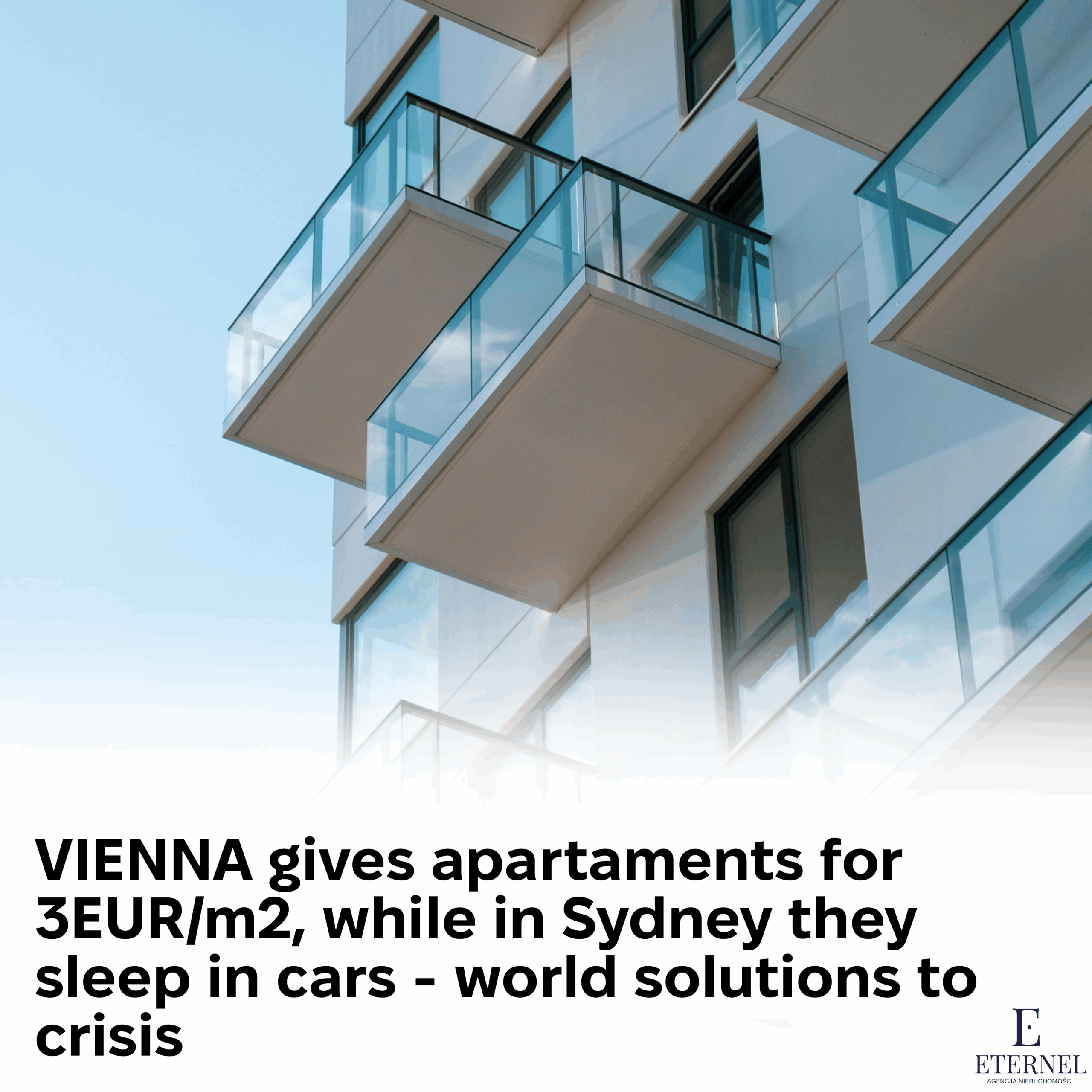Vienna gives apartments for 3 EUR/m², while in Sydney they sleep in cars – world solutions to crisis

Housing crisis affects the whole world. But each country copes differently. We collected most interesting solutions – some genius, others… controversial.
VIENNA – city where 60% of residents live in municipal apartments. And what apartments! New district Seestadt Aspern is 10,000 social apartments that look like luxury apartments. Rent? 3-7 EUR/m². How possible? City buys land, builds, manages. Profit? Zero. Goal? Housing for people.
Polish delegation was shocked. “Here municipal apartments are last resort. There it’s normality” – says official from Warsaw. In Vienna 17,000 people waiting on list. In Krakow? 3,000. Difference? Prestige and quality.
SINGAPORE went different route. 80% of residents own apartments… but not quite. HDB system is 99-year lease from state. Prices? 30-50% of market value. Catch? Must live, can’t speculate. Selling? Part of profit returns to state.
Effect? Young buy apartments at age 25. Homelessness practically doesn’t exist. Problem? Zero diversity. All blocks look identical.
BERLIN tried to freeze rents. Total chaos. Owners withdrew apartments from market. In 2020 there were 20,000 rental offers. In 2023? 5,000. Black market prices skyrocketed. Experiment ended in failure.
TOKYO surprises. City of 37 million people, and prices falling. How? Build like crazy. 150,000 new apartments yearly. Zero height restrictions, zero protection of “district character”. Effect? Studio in center for 1000 EUR/month. In London? 3000 EUR.
BARCELONA fights Airbnb. From 2028 total ban on tourist rentals. 10,000 apartments should return to market. Owners furious, residents happy. First effects? Rental prices dropped 5%.
AND HERE? New program “Mieszkanie na Start” is drop in ocean of needs. 60,000 apartments in 10 years. Singapore builds that in half year. But there are local successes. Gdynia sells plots to developers on condition: 30% apartments for city rental for 15 years.
Wrocław tests cooperatives. Group of people buys land, builds together. 30% cheaper than developer. Problem? Polish law doesn’t provide for such form. They operate in gray zone.
STRANGEST SOLUTION? Amsterdam – apartments on water. 15,000 floating homes. When land lacking, build on water. Price similar to “land” ones, but zero property tax. Legal loophole.
Every solution has pros and cons. Vienna shows state can build beautifully and cheaply. Singapore that ownership isn’t everything. Tokyo that you just need to build more.
And we? Copy bit from each, not fully understanding context. Maybe time for own, Polish way?

